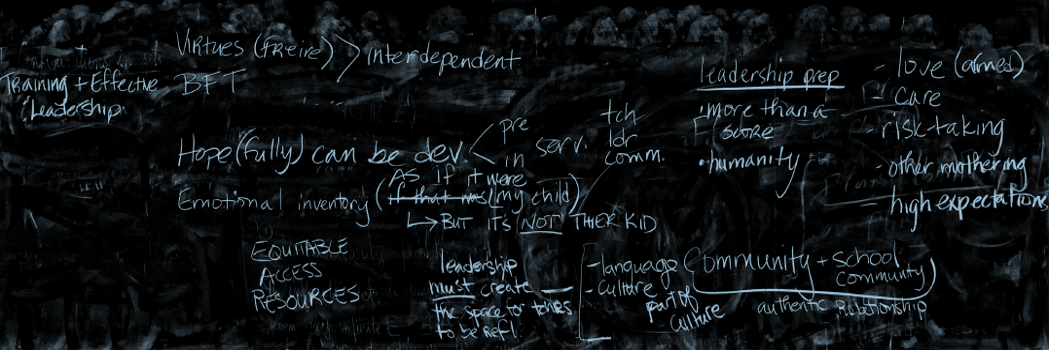The readings for this week highlighted the contributions of Paulo Freire and his transformative approach to education by centering love, liberation, and humanity in education. The readings resonated deeply with me because at the crux was this idea of being fearless in the pursuit of transformative education. I have always lived by the motto of being fearless. Fearless in the goals that I pursue and living fearlessly as I push for equity in education. “Armed love” is exactly what is needed if we want to see changes in society and the field of education as it activates the love in “armed love” and also the notion of being fearless “the love required in education for liberation and equality cannot be timid” (Rivera McCutchen, 2019, p. 237). The issues within urban education have less to do with the people that are seeking education and more to do with the structural, systemic, and environmental violence that is experienced by Black and Latin-X communities (Miller, Brown, & Hopson, 2011). Similarly, to find solutions and address the issues that plague our education system, we have to look beyond individual circumstances and recognize how interconnected political and economic forces are in perpetuating injustice (Darder, 2002). I agree with Paulo Freire (1998) in his assertion that we must listen to everyone regardless of their intellectual level and we must listen without elitism. However, why do I feel like the people that are heading to this advice are not the people that need to hear this? While encouraged by this week’s readings because I feel like I have tangible approaches that are not only evidence-based but are also in alignment with my educational philosophy, I still have questions. I want to know what our decision-makers are being taught and what qualifies them to be education leaders charged with improving our education system? Because as far as I’m concerned, I don’t see any of the recommendations and/or philosophical approaches incorporated in the work that they do to improve our education system. But, I digress! Maybe it’s the people in this class that is meant to be transformative and for what it’s worth I believe in each and every one of you!
Radical Care Sp21
Teaching & Leading for Justice in Schools




Freire’s assertion that we should be listening to and honoring all voices and dispense with the notion that some voices are more valid than others based on a specific status (i.e. education level, assumed intellect or competence, class, etc.) is something that also stood out to me. As an educator this is something that we have to confront on both ends. We have to deal with being dismissed along with our students, families and communities by the powers that be or “experts” that think they know better or simply don’t care. On the other hand we have to confront our own biases that can cause us to be dismissive or condescending towards children and families. I know I have had to confront my own adultism and internalized respectability politics as an educator in the past.
This point by Freire also makes me think about critiques of historical and even contemporary social movements that have emphasized respectability as a necessary means for being heard, respected and taken seriously and using the way someone speaks, dresses, acts or lives as a way as way to diminish their value to the movement’s work or erase them from the work all together. I remember talking about this in a lesson with 3rd graders on youth leaders during the Civil Rights Movements. We talked about how Claudette Colvin, then a teenager, had been arrested for refusing to give up her seat on the bus before Rosa parks and what role her young age, skin tone, and the fact that she was pregnant may have played in the erasure of her narrative until relatively recently.